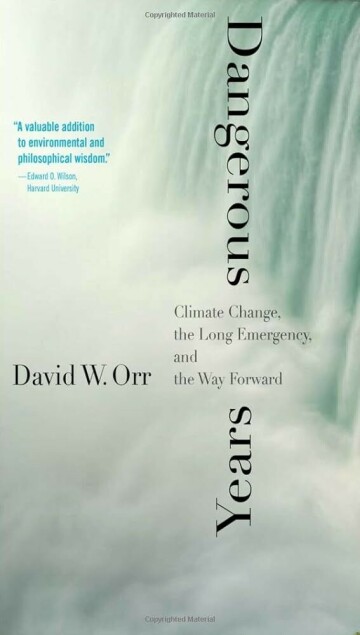News & Articles
Browse all content by date.

The past several weeks, I've been thinking about the October 23rd climate conference at UMD and the November 7th local elections for mayor and city council.
The conference opened with several sessions addressing the 2018 climate vulnerability assessment for Duluth and some alarming findings and projections. The assessment stated that “by the middle of this century (2040-2070) summertime conditions for Duluth are projected to be similar to the conditions currently felt over 250 miles or further to the south.”
It also reported that our city is moving 145 feet to the south every day. It was the first time since the assessment was presented to Duluth's city government that there had been a public discussion about its findings and projections. And along with the most recent reports on climate change from various governmental and scientific organizations, it was becoming more apparent that climate events were more intense and happening at a faster pace than we had expected or planned for.
On November 14th, the 5th National Climate Assessment was released to the public. Among the various findings in this report, it stated that warming is apparent in every region, heavy precipitation events are increasing everywhere except for Hawaii and the U.S. Caribbean, and people born in 2020 will be exposed to more climate-related hazards then people born in 1965.
Also, droughts are projected to increase and, along with rising temperatures, there will be increased instabilities in U.S. and global food production. And climate events in such states as California, Texas and Florida will displace millions of people.
And then on November 16th, we heard that the National Oceanic and Atmospheric Administration (NOAA) reported that the October global temperatures rose to 1.34 degrees Celsius (2.41 Fahrenheit) above the 20th century average and 1.57 degrees Celsius above the preindustrial period.
Also, the World Meteorological Organization (WMO) stated that the amount of climate-heating gases in the atmosphere reached record highs in 2022. And ten Mediterranean countries - including Spain, Greece and Egypt - recorded new high temperatures in November. Considering the ongoing developments with climate change from around the world and the growing concerns about its present and future impacts in Duluth, it's surprising that our city isn't responding with a greater sense of clarity and urgency.
David Orr, in his book The Dangerous Years: Climate Change, the Long Emergency and the Way Forward, talks about the challenges we face in addressing what he calls this “climate emergency.” Orr argues that to become more resilient we have to “remedy the systemic flaws” that have contributed to a very unstable and precarious planet.
Citing studies that show 25% of CO2 released today in the atmosphere will still be affecting our climate 1,000 years from now, Orr raises concerns about our denial and resistance to addressing climate change.
Looking at Duluth, I'm concerned that we're putting ourselves in danger. When we elect a mayor and the two at-large members of the city council who don't want to talk about climate change. When we accuse environmentalists and climate activists of being leftists, socialists and communists. When it takes us more than five years to have a public conversation about a climate report. When we say that we're concerned about our young people experiencing climate anxiety but aren't providing any counseling or support services.
Many people around the city are proclaiming that we need to get back to basics. We need to focus on roads, housing, public safety and bringing new jobs to Duluth.
Yes, these items are important to our city but they are all going to be dramatically impacted by climate change. So, if we don't consider all of these basic needs within the context of this growing climate emergency, are we being negligent or complicit?
The other morning, I decided to walk downtown and stopped by Duluth's Best Bread for some coffee and my favorite cinnamon roll before heading to a meeting. Upon grabbing my chair, I heard Stevie Wonder singing “Superstition.”
“Very superstitious, writings on the wall. Very superstitious, ladder's bout to fall. When you believe in things that you don't understand, then you suffer. Superstition ain't the way.”
Looking at the new mayor, a majority of the city council and many of our community's institutions - including the Chamber of Commerce and unions - I'm beginning to worry. By their silence and often unwillingness to join the growing conversation about climate change, I'm beginning to wonder if they can clearly see the writing on the wall and truly understand what's happening all around us. Are the blind leading the blind? Are our fears and insecurities about facing this climate reality preventing us from appreciating the significance of current and future climate events in our city? Are we collectively putting ourselves in danger?
| Tweet |


